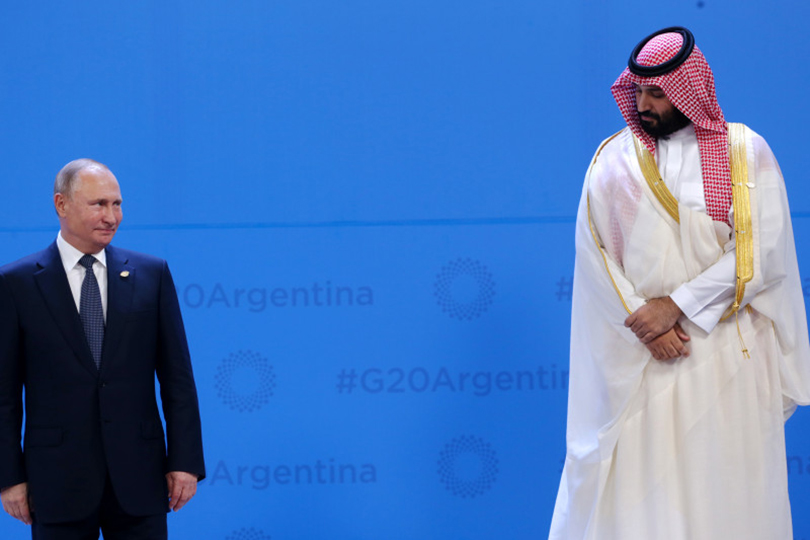A train wreck is about to occur in the oil market, and there will be casualties. Russia and Saudi Arabia, which previously had cooperated in making the world market well-supplied, no longer can agree on how to share the benefits.
Today Riyadh announced it will step up output to a record 12.3 million barrels per day in April, the vast majority of which is exported. The kingdom can’t actually produce that amount. Daily production last week was 9.7 million barrels, and taps just can’t be turned to suddenly produce an extra million-plus. At least initially, the balance will come from stockpiles, probably tankers floating at anchor in parts of the world close to important markets.
Russia also is increasing production but its incremental volumes are smaller. It’s a game of bluff: Who can survive longer? And we are the spectators.
The crucial factor is price. Oil was trading in the $50-per-barrel range last week. Yesterday it slumped to the high $20/low $30 range. Each side has strengths and weaknesses. Russia’s budget requirements can be met at a lower price per barrel than Saudi Arabia’s. But the kingdom can produce oil much more cheaply than Russia.
Isn’t a low oil price good for the economy of the United States and many other countries? Well, yes, but it’s not good if you work for an oil company, especially one of the shale oil companies that have transformed U.S. production in recent years, making us a net exporter. Many of the shale companies are marginal commercial operations. Some will survive, but many may not be able to withstand a period of being unprofitable.
And, as they say, “what goes up must come down” and vice versa. The whole purpose of the Russian and Saudi tactics is to regain a measure of control over the market, so they can sell at the price they want. That price, almost by definition, likely will be higher than what we, the ordinary consumers, would like.
Such antics by Russian President Vladimir Putin perhaps are not surprising. But aren’t the Saudis meant to be our allies? The line used to be — at least after the crisis when Saudi Arabia shut off oil exports to the U.S. during the 1973 Arab-Israel war — that the kingdom would make sure the world economy was adequately supplied with reasonably priced oil.
Riyadh sometimes has interpreted “reasonably priced” as “realistically priced.” But these days, such diplomatic smoothness is gone. Yesterday the Department of Energy issued a statement that included: “These attempts by state actors to manipulate and shock oil markets… ” Such language may be normal in dealing with Moscow but is new, at least publicly, for communication with Riyadh. The White House said today that President Trump spoke with Saudi Arabia’s Crown Prince Mohammad bin Salman, or MbS, on Monday about global energy markets.
When is this going to end? And how is this going to end? The “when” is difficult to answer. It might end tomorrow if Iran were to launch another salvo of missiles against Saudi oil installations as it did last September. But assuming the crisis remains a simple struggle between the rival ambitions of President Putin and MbS, Saudi Arabia’s effective leader, then expect it to be a knife fight. Both men are ruthless and determined. One could perhaps debate who is more cunning. I know where my money is.







Comments